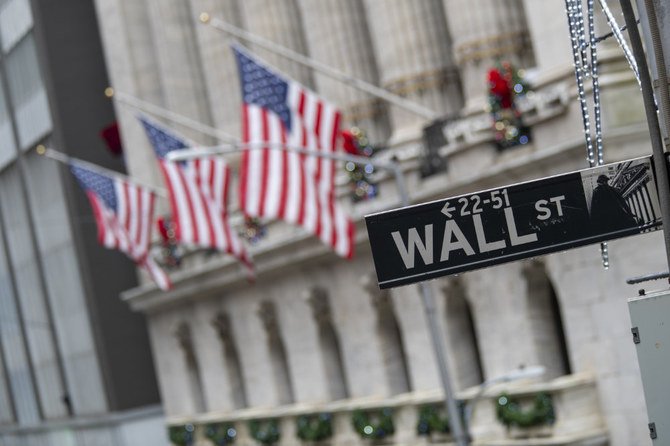
- ARAB NEWS
- 11 Jul 2025

It looks certain to be another rollercoaster week on the world’s stock markets. After the big crash of early last week, there came the welcome sight of three exuberant days’ trading after the US Congress passed its $2 trillion aid package, bringing the sharpest rise on Wall Street for a decade.
But what goes up must come down, and all the sentiment is that this coming week will test stock markets’ resilience once more. The bulls and the bears will once more square off in the timeless confrontation that is the global financial market.
The bulls firmly believe that financial markets are set fair for recovery because the Congressional “bazooka” will find its target and kill off the economic effects of the coronavirus COVID-19 outbreak.
The bears are equally convinced that the package will provide only temporary relief for a financial system straining at the seems, and that the shock of the biggest and fastest economic contraction in history will inevitably lead to further financial market gloom.
If you wanted to single out two men to champion those rival viewpoints, look no further than Larry Kudlow and Nouriel Roubini. There is no record of any face-to-face meeting between those two, but if it ever took place it would require a ringside seat.
Kudlow is director of the US National Economic Council and widely regarded as the spokesman for President Donald Trump on economic affairs. He was closely involved in the preparation of the $2 trillion package, and a keen advocate of its cure-all qualities.
Kudlow was telling viewers on Fox News late last week: “You know, it’s going to stabilize the economy,” adding that “The Fed is stabilizing the financial markets so that when this virus runs its course and prayerfully, it'll be the next four to six weeks, maybe eight weeks, something like that.”
Financial markets are extremely sensitive to outside factors, like a spike in the virus rates, worse news on the Chinese partial re-opening in Hubei province, or even a “black swan” in the geopolitical area.
Frank Kane
His message, which chimes with the wishes of his president for the USA to get back to work as quickly as possible, is that, with financial markets put right and the virus “under control”, America will be well place to lead the global economy to the V-shaped recovery some analysts foresee for later this year.
In the other corner, Roubini is living up to his “Doctor Doom” nickname. The independent economic consultant famous for having called the global financial crisis believes we are caught in an inexorable cycle of financial market decline that will end in what he calls a “Greater Depression”, by which he means one much worse than the 1930s decade of economic gloom that ended in World War 2.
Of last week’s Wall Street rally, Roubini tweeted: “It’s indeed a ‘dead cat’ bounce and fake rally in a persistent bear market. Investors should brace for another market dive. The equity rally reflects too much faith that policymakers can offset CORVID-19 effects.”
A ‘dead cat bounce’ is market slang for a false recovery, alluding to the notion that even a dead feline will bounce slightly off the ground if it falls from a great enough height.
We will have a better idea if it is to be dead cat or market stabilization when Wall Street opens on Monday. Middle East bourses - sometimes a useful lead indicator because of Sunday trading - were relatively calm, taking their cue from the big rises of last week.
In the current volatile situation it is virtually impossible to say with any certainty whether the Kudlow or the Roubini view will ultimately prevail. Financial markets are extremely sensitive to outside factors, like a spike in the virus rates, worse news on the Chinese partial re-opening in Hubei province, or even a “black swan” in the geopolitical area.
But it is reasonably safe to say that it will probably get worse before it gets better.
• Frank Kane is an award-winning business journalist based in Dubai.Twitter: @frankkanedubai